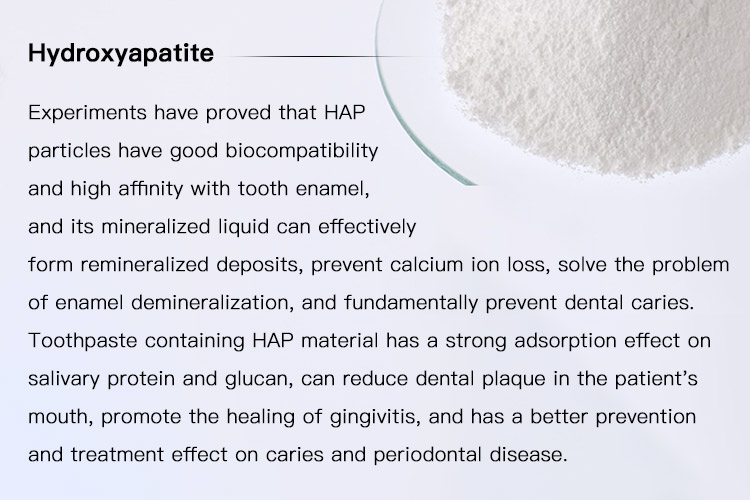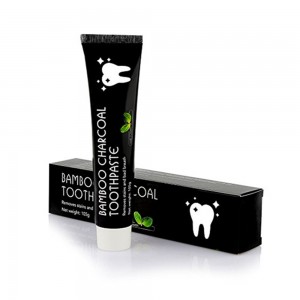Introduction
Welcome to the definitive guide on white label toothpaste options, a booming sector within the oral care industry offering significant opportunities for businesses of all sizes. Whether you’re a burgeoning startup, an established retailer, or a visionary entrepreneur, diving into white labeling allows you to cultivate your very own oral care brand with premium toothpaste products manufactured by experienced experts. This approach bypasses the complexities and massive investment typically required for setting up in-house production facilities. This comprehensive guide will walk you through everything essential you need to know about leveraging white label toothpaste, covering the core concept, undeniable benefits, diverse product types, crucial ingredient considerations, how to select the ideal white label toothpaste manufacturer, customization possibilities, effective branding strategies, regulatory compliance, marketing tactics, cost factors, inspiring success stories, and emerging future trends in white label oral care.
1. What is White Label Toothpaste?
White label toothpaste refers to oral care products that are manufactured by one manufacturer and then sold to multiple businesses. These businesses can then rebrand and sell the toothpaste under their own distinct brand name. Essentially, you are purchasing a ready-made, tested, and often formulated product, allowing you to focus on branding, marketing, and distribution rather than the complexities of toothpaste manufacturing.
2. Key Benefits of Choosing White Label Toothpaste
Opting for white label toothpaste solutions presents a compelling set of advantages for businesses entering or expanding within the oral care market:
- Cost-Effectiveness: A primary benefit is the significant reduction in upfront investment. There’s no need for colossal capital expenditure on manufacturing equipment, facilities, or research and development staff. You leverage the manufacturer’s existing infrastructure.
- Rapid Market Entry: White label products are already formulated and produced. This dramatically shrinks the time from concept to market, enabling your brand to launch quickly and capitalize on market trends or seasonal demand.
- Extensive Customization Potential: While the core formula might be standard, reputable white label toothpaste manufacturers offer substantial customization options, including selecting specific formulas, ingredients (within the base), flavors, textures, colors, and critically, packaging and branding.
- Guaranteed Quality and Expertise: Partnering with an experienced toothpaste manufacturer means you benefit from their established expertise, quality control processes, and adherence to industry standards and regulations, ensuring you offer high-quality and safe oral care products.
3. Diverse Types of White Label Toothpaste Available
The white label toothpaste market is diverse, catering to a wide range of consumer needs and preferences. Popular types available for private labeling include:
- Fluoride vs. Fluoride-Free Formulas: Offering choices based on consumer preference for cavity protection or a fluoride-avoidant stance.
- Whitening Toothpaste: Highly sought after, often utilizing ingredients like peroxides or abrasives designed to remove surface stains.
- Charcoal-Based Toothpaste: A trendy option known for its natural whitening and detoxifying claims.
- Herbal and Natural Toothpaste: Appeals to the growing demand for organic, vegan, and free-from formulations using natural extracts and ingredients.
- Kids’ Toothpaste: Formulated specifically for children, often with milder flavors and fluoride levels, and fun packaging opportunities.
- Sensitive Teeth Formulas: Designed to alleviate discomfort for individuals with tooth sensitivity, often containing desensitizing agents.
4. Essential Ingredients to Consider in Toothpaste Formulations
Understanding the ingredients available is key to selecting the right white label toothpaste product for your brand’s focus:
- Fluoride: A cornerstone in conventional dentistry, proven to help strengthen enamel and prevent cavities.
- Activated Charcoal: Valued for its porous structure which helps absorb surface stains and toxins, aiding in teeth whitening.
- Xylitol: A natural sugar alcohol that inhibits the growth of bacteria responsible for cavities, often used in natural and kids’ formulas.
- Essential Oils: Such as peppermint, spearmint, or tea tree oil, used for flavoring, providing a fresh feeling, and sometimes for their natural antibacterial properties.
- Other Actives: Depending on the product type, ingredients for sensitivity (e.g., potassium nitrate) or tartar control (e.g., tetrasodium pyrophosphate) may be included.
5. How to Choose the Right White Label Toothpaste Manufacturer
Selecting the right partner is critical for your brand’s success. When evaluating white label toothpaste manufacturers or suppliers, consider these factors:
- Reputation and Reviews: Research their history, client testimonials, and industry standing. A manufacturer with a proven track record is more reliable.
- Customization Capabilities: Ensure they offer the level of customization you require, from formula adjustments (within white label scope) to packaging design support.
- Certifications and Compliance: Verify they hold relevant certifications (like ISO) and strictly adhere to necessary regulations (FDA, EU cosmetic standards). This ensures product safety and market access.
- Minimum Order Requirements (MOQs): Understand their minimum order quantities to ensure they align with your business plan and capacity.
- Turnaround Time and Reliability: Assess their production timelines and reliability in fulfilling orders to avoid stock issues.
6. Customization Options for Your White Label Toothpaste
While not creating a formula from scratch, white label toothpaste still offers significant avenues for personalization:
- Flavor Variations: Choose from a wide palette of flavors – classic mints, unique fruit blends for kids, or even specialized options like cinnamon or charcoal flavor.
- Texture and Consistency: Options range from standard pastes to gels or even powders, catering to different preferences.
- Color and Formula Tweaks: Depending on the manufacturer, minor adjustments to color or the inclusion/exclusion of certain non-active ingredients might be possible.
- Special Formulations: Many manufacturers offer base white label lines that include popular options like organic certified, vegan, cruelty-free, or fluoride-free.
7. Effective Packaging and Branding Strategies
Your packaging is the first interaction a customer has with your oral care brand. Strategic design is vital:
- Eco-Friendly Packaging: Align with consumer values by opting for sustainable materials like bamboo brushes or recyclable tubes and boxes.
- Branding Style: Decide on a minimalist, premium, natural, or playful aesthetic that resonates with your target audience.
- Logo Placement and Color Schemes: These elements establish instant brand recognition. Ensure they are consistent and visually appealing.
- Regulatory Labeling: Proper and compliant labeling (ingredients list, usage instructions, warnings, manufacturer information) is non-negotiable for legal sale.
8. Compliance and Regulations in Oral Care
Adhering to regulations is paramount for selling oral care products globally:
- FDA (Food and Drug Administration) Guidelines: In the United States, toothpaste is considered a cosmetic or an over-the-counter (OTC) drug depending on its claims (e.g., cavity prevention). Manufacturers must comply with strict FDA manufacturing practices and labeling requirements.
- EU Cosmetic Regulations (EC) No 1223/2009: In the European Union, toothpaste is classified as a cosmetic and must meet comprehensive safety assessments, ingredient restrictions, and labeling rules.
- ISO Certification: ISO certifications (like ISO 22716 for Cosmetics Good Manufacturing Practices) demonstrate a manufacturer’s commitment to quality and safety standards.
- Cruelty-Free and Vegan Labels: Obtaining certification from organizations like Leaping Bunny or The Vegan Society is crucial if you market your toothpaste with these claims.
9. Marketing Your White Label Toothpaste Brand
Once your white label toothpaste is ready, effective marketing is key to reaching customers:
- SEO-Optimized E-commerce Listings: Ensure your product pages on platforms like Amazon or your own website use relevant keywords (e.g., “whitening charcoal toothpaste,” “fluoride-free kids toothpaste”) and compelling descriptions.
- Influencer and Social Media Marketing: Collaborate with dental professionals, lifestyle influencers, and utilize platforms like Instagram and TikTok to showcase your product and engage with potential customers.
- Retail Partnerships and Direct-to-Consumer (DTC) Sales: Decide whether to sell through brick-and-mortar stores, online retailers, or directly to consumers via your own website.
- Subscription Models: Offer recurring delivery options to build customer loyalty and predictable revenue streams.
10. Key Cost Considerations for White Label Toothpaste
Understanding the cost structure is vital for pricing and profitability:
- Production Costs: This includes the cost per unit charged by the manufacturer, influenced by formulation, ingredients, and order volume (MOQ).
- Packaging and Branding Expenses: Design costs, printing costs for tubes and boxes, and potentially outer packaging or shipping materials.
- Marketing and Distribution: Costs associated with advertising, social media campaigns, shipping, and fulfillment.
- Wholesale vs. Retail Pricing: Determine your pricing strategy based on your sales channels and desired profit margins.
11. Inspiring White Label Oral Care Success Stories
Numerous successful oral care brands started by leveraging white or private label manufacturing. These companies focused on identifying a market niche, building a strong brand identity, and effective marketing, proving that you don’t need your own factory to compete with major players.
12. Future Trends Shaping White Label Oral Care
The oral care industry is constantly evolving, presenting new opportunities for white label brands:
- Sustainable and Biodegradable Products: Growing consumer demand for environmentally friendly options extends to packaging and ingredients. Look for manufacturers offering sustainable solutions.
- AI-Driven Personalized Oral Care: While complex, the trend towards personalization could influence future white label offerings, potentially through customizable ingredient boosters or recommended routines based on AI analysis.
- CBD-Infused Toothpaste: As regulations evolve, CBD is being explored for its potential anti-inflammatory properties in oral care.
- Smart Packaging: QR codes linking to product information, usage tips, or sustainability stories are becoming more common.
Conclusion
Exploring white label toothpaste options offers a streamlined and accessible pathway to launching or expanding your own oral care brand. By partnering with a reliable white label toothpaste manufacturer, focusing on smart branding, ensuring regulatory compliance, and executing effective marketing strategies, you can successfully bring high-quality toothpaste products to market with reduced risk and investment. This allows you to concentrate on building a strong brand identity and connecting with your customers.
Post time: Apr-01-2025







